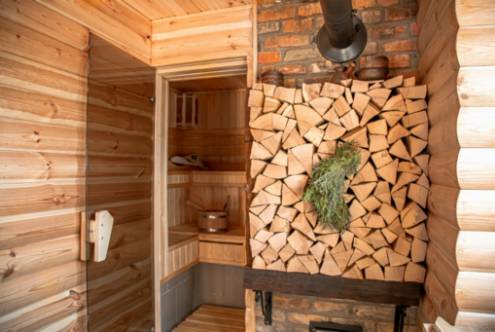When it comes to building a sauna in your home or garden, one of the most important decisions you'll need to make is choosing the right type of wood. Each type of wood has its own unique advantages and considerations to keep in mind when selecting the best option for your sauna construction project. In this article, we will explore the characteristics of different types of wood commonly used in sauna building, including hemlock, redwood, pine, and spruce, to help you make an informed decision for your sauna construction project.

Factors to Consider When Choosing Hemlock Wood for Your Sauna
When selecting the right wood for your sauna, there are several factors to consider. One popular choice is hemlock wood, which offers many advantages for sauna construction. Hemlock is known for its resistance to warping and cracking, making it a durable option for sauna walls and benches. Additionally, hemlock has a pleasing aroma that can enhance the sauna experience. It is important to make sure that the hemlock wood is sustainably sourced and has been properly dried to prevent mold growth in the sauna environment. Overall, hemlock wood is a great choice for those looking to build a long-lasting and enjoyable sauna space.
Understanding the Advantages of Redwood in Your Sauna Construction
Redwood is a popular choice for sauna construction due to its many advantages. One of the main benefits of using redwood is its natural resistance to decay and insects, making it a durable and long-lasting option for sauna building. Additionally, redwood has a beautiful natural color and grain pattern, adding aesthetic appeal to your sauna. Redwood also has excellent insulating properties, helping to retain heat and create a comfortable sauna experience. Overall, choosing redwood for your sauna construction can result in a high-quality, visually appealing, and well-insulated sauna that will stand the test of time.
Comparing the Pros and Cons of Pine Wood for Your Traditional Sauna
Pine wood is a popular choice for traditional saunas due to its affordability and abundance. It is readily available and relatively inexpensive compared to other types of wood, making it a cost-effective option for those looking to build their own sauna. Pine wood also has a pleasant aroma that can enhance the sauna experience, creating a relaxing and inviting atmosphere.
One of the main advantages of using pine wood for a sauna is its natural insulating properties. Pine wood has a high thermal resistance, which means it can help retain heat within the sauna, making it more energy efficient and cost-effective to run. This can result in lower energy bills and a more comfortable sauna experience for users.
However, there are some drawbacks to using pine wood in a sauna as well. Pine is a softwood, which means it is more prone to dents, scratches, and other damage compared to hardwoods like cedar or redwood. This can result in a less durable sauna that may require more maintenance and upkeep over time.
Another potential downside of using pine wood in a sauna is its tendency to release sap and resin when exposed to heat. This can create a sticky and messy environment inside the sauna, requiring regular cleaning to maintain a comfortable and hygienic space.
Overall, pine wood can be a good choice for building a traditional sauna if budget is a primary consideration. Its affordability, pleasant aroma, and insulating properties make it a viable option for those looking to create a cozy and cost-effective sauna experience. However, it is important to weigh the pros and cons of using pine wood in a sauna to determine if it is the right choice for your needs and preferences.
Exploring the Beauty and Durability of Spruce Wood in Sauna Building
When it comes to building a sauna, one important factor to consider is the type of wood you will use. Spruce wood is a popular choice for sauna construction due to its beauty and durability.
Spruce wood has a light color and a straight grain pattern, which can add a touch of elegance to your sauna. Its natural beauty can create a soothing and inviting atmosphere, enhancing the overall sauna experience.
In addition to its aesthetic appeal, spruce wood is known for its durability. It is a strong and sturdy wood that can withstand the high temperatures and humidity levels typically found in saunas. This makes it a reliable choice for sauna building, as it is less likely to warp or crack over time.
Overall, spruce wood is a great option for those looking to build a beautiful and long-lasting sauna. Its combination of beauty and durability make it a popular choice among homeowners and sauna builders alike.
